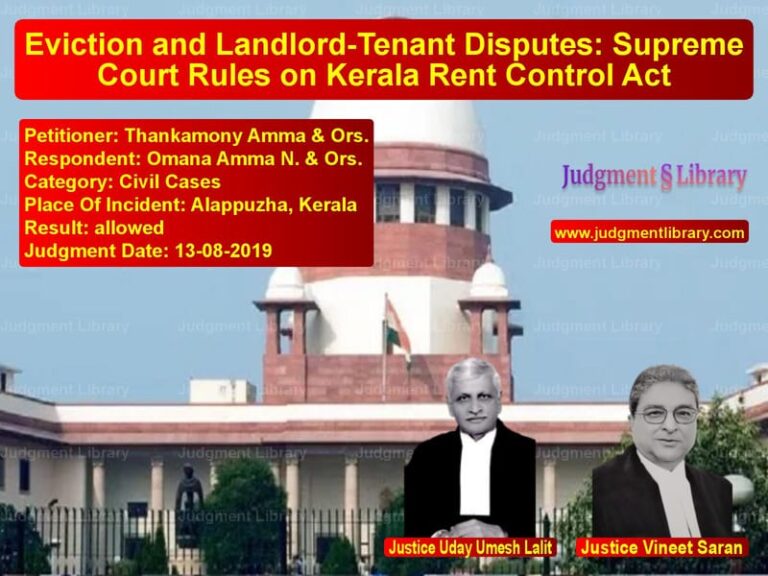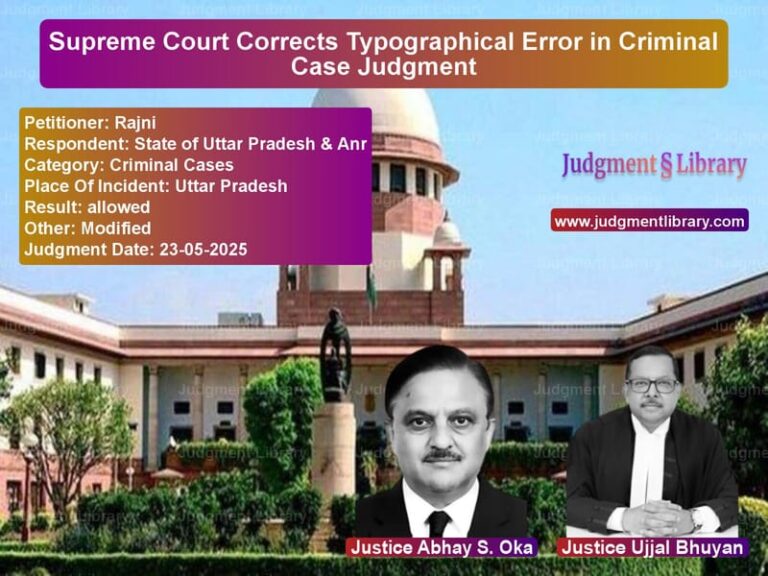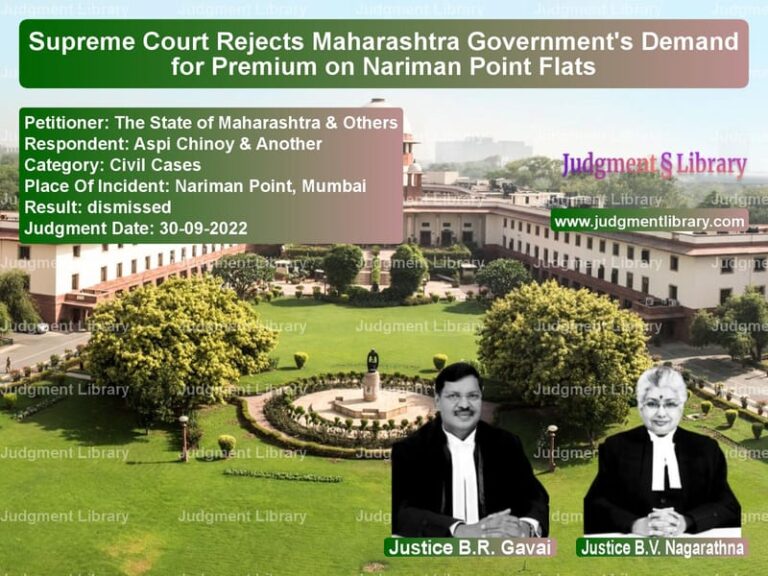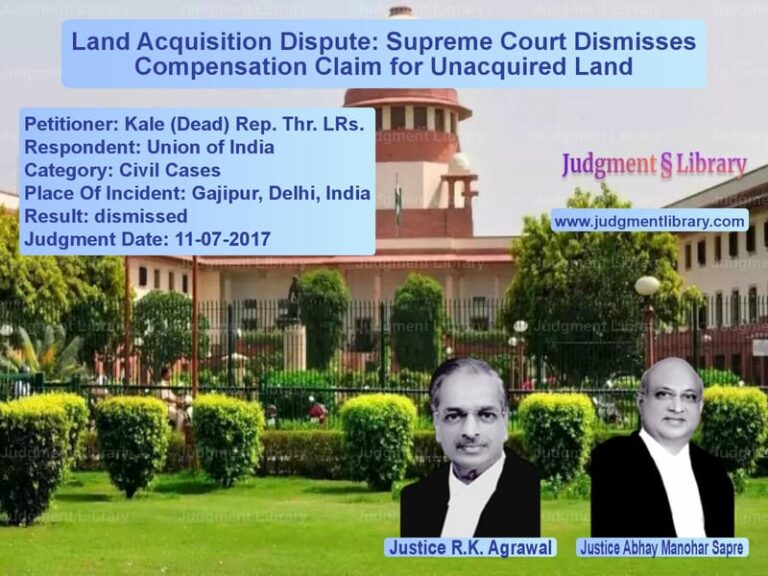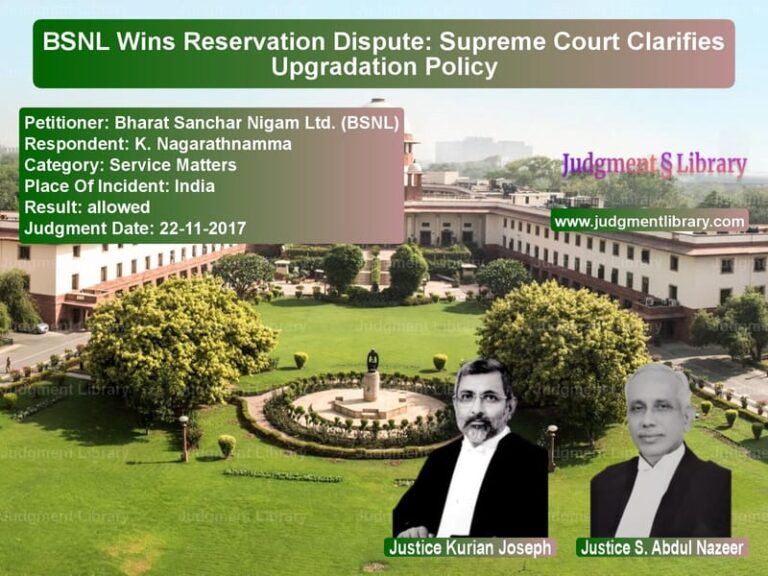Election Dispute in Dental Council: Supreme Court Sets Aside High Court Order
The case revolves around the election of a member to the Dental Council of India under Section 3(a) of the Dentists Act, 1948, and the Dental Council (Election) Regulations, 1952. The appellant, Shaji K. Joseph, challenged the High Court’s decision allowing the nomination of respondent V. Viswanath, whose name was not included in Part A of the register of dentists for the state.
Background of the Case
Respondent No. 1, V. Viswanath, wished to contest the election but was denied participation as his name was absent from the electoral roll. Consequently, he filed a writ petition before the Kerala High Court, which ruled in his favor, directing the Returning Officer to conduct the election afresh. The appellant, Shaji K. Joseph, then challenged this decision before the Supreme Court.
Petitioner’s Arguments
The appellant argued that the High Court should not have interfered with the election process once it had commenced. He cited precedents such as N.P. Ponnuswami v. The Returning Officer and Shri Sant Sadguru Janardan Swami Sahakari Dugdha Utpadak Sanstha v. State of Maharashtra, which upheld the principle that courts should not interrupt elections once they have begun.
The appellant also contended that election disputes should be referred to the Central Government, as specified under Section 5 of the Act and Regulation 20 of the Regulations.
Respondent’s Arguments
The respondent argued that he was qualified to contest the election despite his exclusion from Part A of the state register. He asserted that the eligibility criterion only required a candidate to be a registered dentist possessing a recognized qualification.
He further contended that his exclusion was improper and that the High Court was justified in intervening.
Supreme Court’s Judgment
The Supreme Court held that the High Court erred in interfering with the election process. The Court emphasized that once an election process begins, judicial intervention should be minimal, as reiterated in past precedents.
Additionally, the Court highlighted that Respondent No. 1 had an alternative remedy available—he could have challenged his exclusion before the Central Government after the election’s conclusion.
The Court concluded by setting aside the High Court’s order and directing that the election result be published.
Conclusion
The Supreme Court reaffirmed the principle that judicial interference in election matters should be avoided unless absolutely necessary. This judgment reinforces the statutory provision that election disputes should be resolved through prescribed mechanisms rather than through judicial intervention.
Don’t miss out on the full details! Download the complete judgment in PDF format below and gain valuable insights instantly!
Download Judgment: Shaji K. Joseph vs V. Viswanath Supreme Court of India Judgment Dated 22-02-2016-1741852425446.pdf
Direct Downlaod Judgment: Direct downlaod this Judgment
See all petitions in Public Interest Litigation
See all petitions in Legislative Powers
See all petitions in Judgment by Anil R. Dave
See all petitions in Judgment by Adarsh Kumar Goel
See all petitions in allowed
See all petitions in supreme court of India judgments February 2016
See all petitions in 2016 judgments
See all posts in Election and Political Cases Category
See all allowed petitions in Election and Political Cases Category
See all Dismissed petitions in Election and Political Cases Category
See all partially allowed petitions in Election and Political Cases Category



